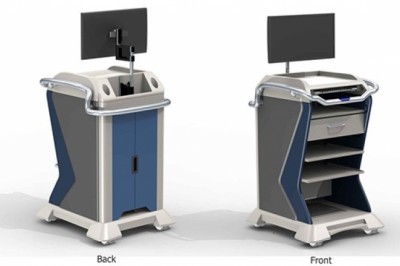views

Discrimination in the workplace seems like it should be an issue of the past, but it's still rampant in many modern employment settings. If you feel you have been discriminated against, then you can file a complaint with HR. If nothing is done about it, you should contact a Kansas City, MO workplace discrimination attorney. You deserve to feel safe and comfortable at work.
What Factors Are Illegal to Discriminate Against in the Workplace in Kansas City, MO?
The Missouri Department of Labour specifies that it is illegal to discriminate against people for the following:
- Race
- Religion
- Colour
- Ancestry
- National Origin
- Age
- Disability
- Sex
If you've been discriminated against for any of these things in the workplace, then you're entitled to make a report to human resources and have the person who discriminated against you reprimanded for it. Unfortunately, human resources won't always be on your side, so discrimination cases often accelerate to getting a discrimination attorney in Kansas City, MO involved.
Ask a Workplace Discrimination Attorney: How Do You Prove Discrimination?
1. Digital Records
Have you been discriminated against through text or email? If so, then in many cases screenshots of the incident serve as indisputable proof of what happened. The discriminatory party's team may attempt to argue that the screenshots are fabricated, so be sure to keep a copy of the original on your devices, too. Don't delete texts or emails containing incidents of discrimination.
The discriminatory party's team may also try to pass off what was said as a joke or mistake. Please be aware that if what was said caused distress or impacted your mental health, then it doesn't matter what the intent behind it was. It was a form of discrimination, and your attorney can help you argue your case.
2. Recordings
If the incident was caught on camera, then your lawyer can try to get a copy of the footage to use as evidence in your favor. If no footage exists, and there are no other forms of evidence available, then you may be able to collect some evidence yourself. Missouri is a one-party consent state, so you can record a conversation if at least one person involved in it consents to you doing so.
Therefore, you can record a conversation between you and the person discriminating against you as long as you consent to it. If discrimination occurs during the conversation, then it's evidence that this is a person who's likely to engage in this type of behavior. It helps show you're less likely to be lying about it happening previously.
3. Witnesses
Many interactions at the workplace happen in front of co-workers. If you know any co-workers who witnessed the discriminatory incidents you previously experienced, then you should give their contact information to your attorney so your attorney can call upon them to testify for you. The more witnesses you have, the better.
You should also be sure to let your attorney know which witnesses are most likely to cooperate and help you build a case, so your attorney will contact these people first.
4. Human Resources Records
Have other people complained or reported the person who discriminated against you? If so, then records will show this, and showing that this person has been engaging in this type of behavior for a while will help strengthen your current claim. Other people who have made complaints against the discriminatory party can also make statements to help strengthen your case.
Can You Lose Your Job Over Reporting Workplace Discrimination?
If your position is terminated after you take legal action against somebody discriminating against you in the workplace, then you have been unlawfully terminated. Unlawful termination is a whole other lawsuit that you can open against your company if it occurs. Therefore, you shouldn't be fired for taking action against somebody who was discriminating against you in the workplace.
The only person it's legal to fire in this situation is the person who is discriminated against you. Parties who enabled them may also lose their positions at the company. Please tell your attorney straight away if you lose your position, are demoted, or have your pay cut after reporting the discrimination.
What Can You Be Compensated For in a Workplace Discrimination Case?
You can receive compensation for lost bonuses/promotions, emotional distress, lost income after having to take time off work, and more depending on your case. Your attorney will evaluate the situation and help you win as much compensation for your damages as possible.
It can often be tricky to prove that you've been discriminated against at work. However, do your best to collect photographic and video evidence, and talk to any witnesses who can back up your story. Don't let this discrimination go unaccounted for, as it is never acceptable, and you should always take action to prevent it from happening again.












